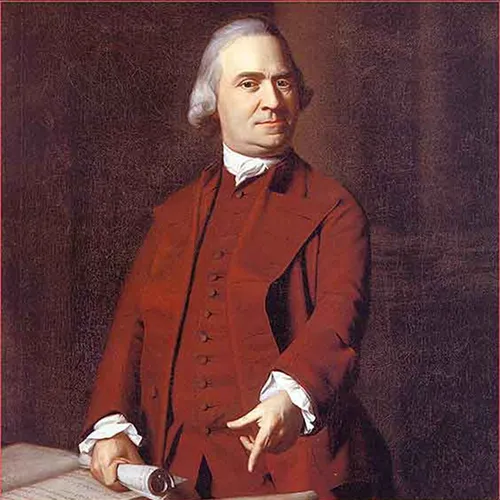Episode 432 – Civil War: Part 2 – Church and State Theological Polity Muddle
- Author
- tomsaprime
- Published
- Fri 09 Feb 2024
- Episode Link
- https://samueladamsreturns.net/episode-432-civil-war/
See the link for the video of ‘Civil War? Part 2 – Church and State Theological Polity Muddle’ at Rumble or YouTube
With all that is happening at the border and more, I delve into the present rumblings of Civl War – Part 2 – Church and State Theological Polity Muddle. I finish with Mayhew, who discusses what civil war would do to the nation. Remember that the Colonies were part of the nation of Great Britain. The American Revolution was actually a Civil War. Consider Reference #1 by John Kudla below.Mayhew does delve into what it is to ultimately understand God given Rights and act accordingly to preserve them?
Our Citizenry, for the most part, have no realistic clue as to the fundamentals of God given Rights. Those bellowing and blowing in the wind are humanistic statists, on the ‘left’ and ‘right’. Therefore they view Rights relativistically, having no moral order from the existence of a Biblical God who is active in His creation. Therefore, unlike the Citizens during the founding era, indigenous (the Webster 1828 definition) US Citizens are not prepared for Civil War or even defending the Republic from political enemies and those now here from the border invasion (read This Weeks News Articles Resources #2.)
Mayhew establishes the ‘Doctrine of the Lesser Magistrate’ in how the Stamp Act was addressed. What does that mean for us when the Citizenry and those serving in any level of government activities have zero to limited comprehension of how to apply this foundational truth?
Ezra Stiles opened his sermon, which we will discuss next week, with:
These events have been so ordered as to become a display of retribution and sovereignty; for, while the good and evil hitherto felt by this people have been dispensed in the way of exact national retribution, their ultimate glory and honor will be of the divine sovereignty, with a “Not for your sakes do I this, saith the Lord, be it known unto you, but for mine holy name’s sake.”
What Stiles preached is very true even for our present situations.
It is necessary to note that Mayhew takes a lot of time attempting to reconcile the Colonist to the King and Parliament. And then he moves to develop the following, from the sermon:
‘Let none suspect that, because I thus urge the duty of cultivating a close harmony with our mother country, and a dutiful submission to the king and Parliament, our chief grievances being redressed, I mean to dissuade people from having a just concern for their own rights, or legal, constitutional privileges. History, one may presume to say, affords no example of any nation, country or people, long free, who did not take some care of themselves; and endeavor to. guard and secure their own liberties. Power is of a grasping, encroaching nature, in all beings, except in Him to whom it emphatically “belongeth;” and who is the only king that, in a religious or moral sense,”can do no wrong.” Power aims at extending itself, and operating according to mere will, wherever it meets with no balance, check, control or opposition of any kind. For which reason it will always be necessary, as was said before, for those who would preserve and perpetuate their liberties, to guard them with a wakeful attention; and in all righteous, just and prudent ways, to oppose the first encroachments on them. “Obsta principiis.
